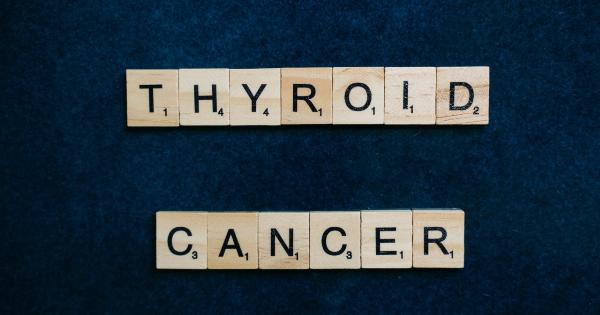Thyroid nodules are lumps that form in the thyroid gland, which is located at the base of the neck and produces hormones that regulate metabolism. While most thyroid nodules are benign, some can be cancerous.
Understanding the risks and symptoms can help you identify and treat thyroid cancer early, improving your chances of recovery.
What Causes Thyroid Nodules?
The causes of thyroid nodules are not fully understood, but several risk factors have been identified. Women are more likely than men to develop thyroid nodules, as are people over age 60. Family history can also play a role, as can exposure to radiation.
In some cases, autoimmune diseases or an iodine deficiency can contribute to thyroid nodule development.
Types of Thyroid Cancer
There are four main types of thyroid cancer:.
Papillary Thyroid Cancer
This is the most common type of thyroid cancer, accounting for about 80% of cases. It typically grows slowly and is often discovered by chance during an ultrasound or other imaging test.
Fortunately, papillary thyroid cancer is usually a highly treatable form of cancer, with a high survival rate.
Follicular Thyroid Cancer
This type of thyroid cancer is less common than papillary thyroid cancer, accounting for roughly 10% of cases. It is more likely to spread to other parts of the body than papillary thyroid cancer.
Follicular thyroid cancer can be more difficult to treat than other types of thyroid cancer, but early diagnosis and treatment can improve outcomes.
Medullary Thyroid Cancer
Medullary thyroid cancer accounts for about 4% of thyroid cancers. It occurs when parafollicular cells in the thyroid gland grow abnormally.
While medullary thyroid cancer can be more aggressive than other types of thyroid cancer, its prognosis is usually good when detected early.
Anaplastic Thyroid Cancer
This is the most rare and aggressive form of thyroid cancer, accounting for less than 2% of cases. It grows very quickly and often spreads to other parts of the body. Anaplastic thyroid cancer is difficult to treat and has a poor prognosis.
However, with advancements in treatment options, some patients have seen remarkable improvements in outcomes.
Symptoms of Thyroid Cancer
In many cases, thyroid cancer causes no symptoms and is discovered during an imaging test. However, some people with thyroid cancer may experience symptoms such as:.
- A lump in the neck
- Swollen lymph nodes in the neck
- Difficulty swallowing
- Hoarseness or voice changes
- Persistent cough not related to a cold
- Pain in the neck or throat
Diagnosis of Thyroid Nodules and Cancer
If your doctor suspects thyroid nodules or cancer, they will likely perform a physical exam and order imaging tests such as an ultrasound or CT scan. A biopsy may also be necessary to determine whether nodules are cancerous.
Treatment of Thyroid Nodules and Cancer
The treatment options for thyroid nodules and cancer depend on the type and stage of cancer, as well as your overall health. In some cases, surgery to remove the thyroid gland may be necessary, followed by hormone replacement therapy.
Radiation therapy and chemotherapy may also be used in some cases.
Prevention of Thyroid Nodules and Cancer
While there is no way to prevent thyroid nodules or cancer entirely, there are some steps you can take to reduce your risk:.




























